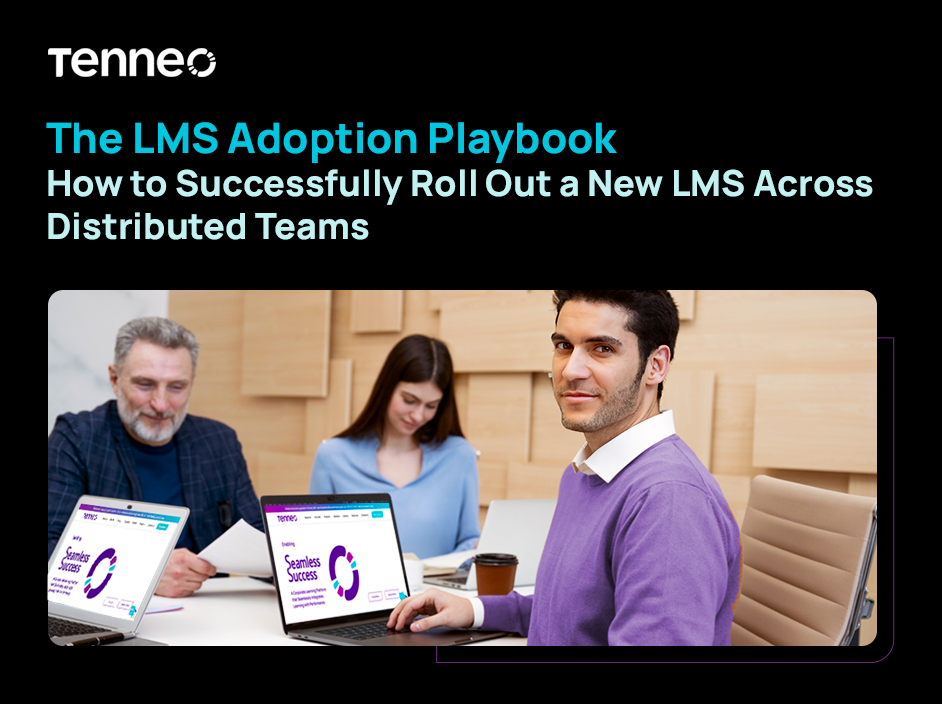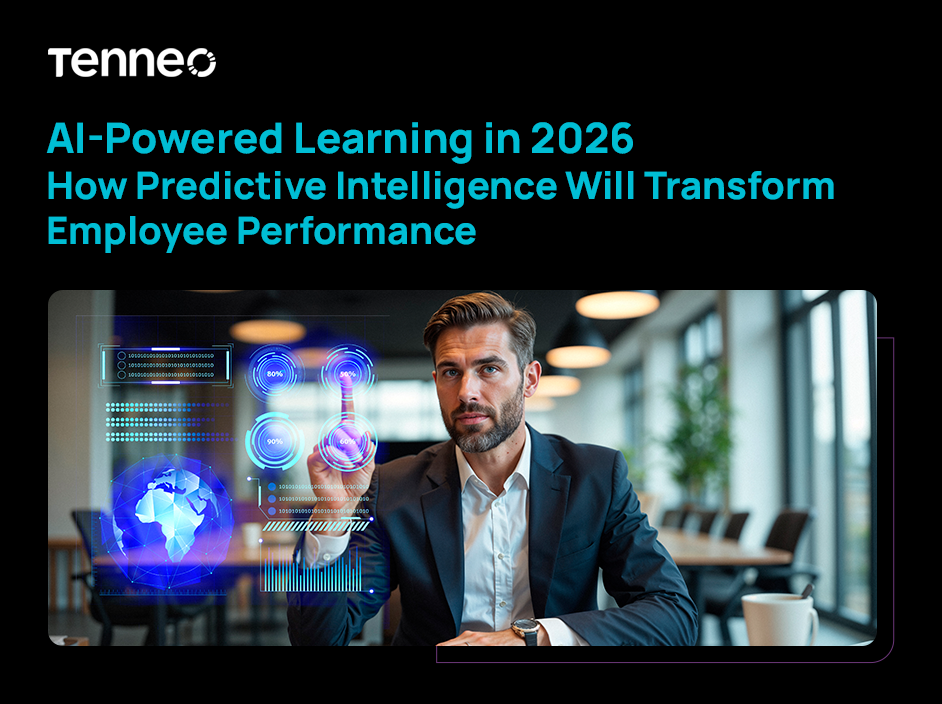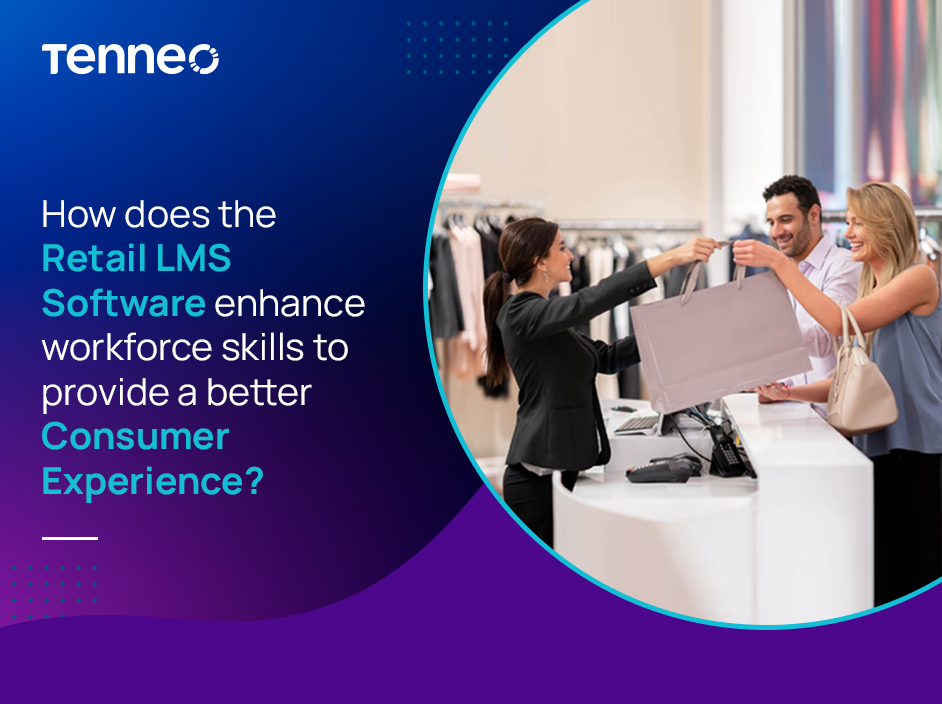
How does the Retail LMS Software enhance workforce skills to provide a better consumer experience?
April 13, 2023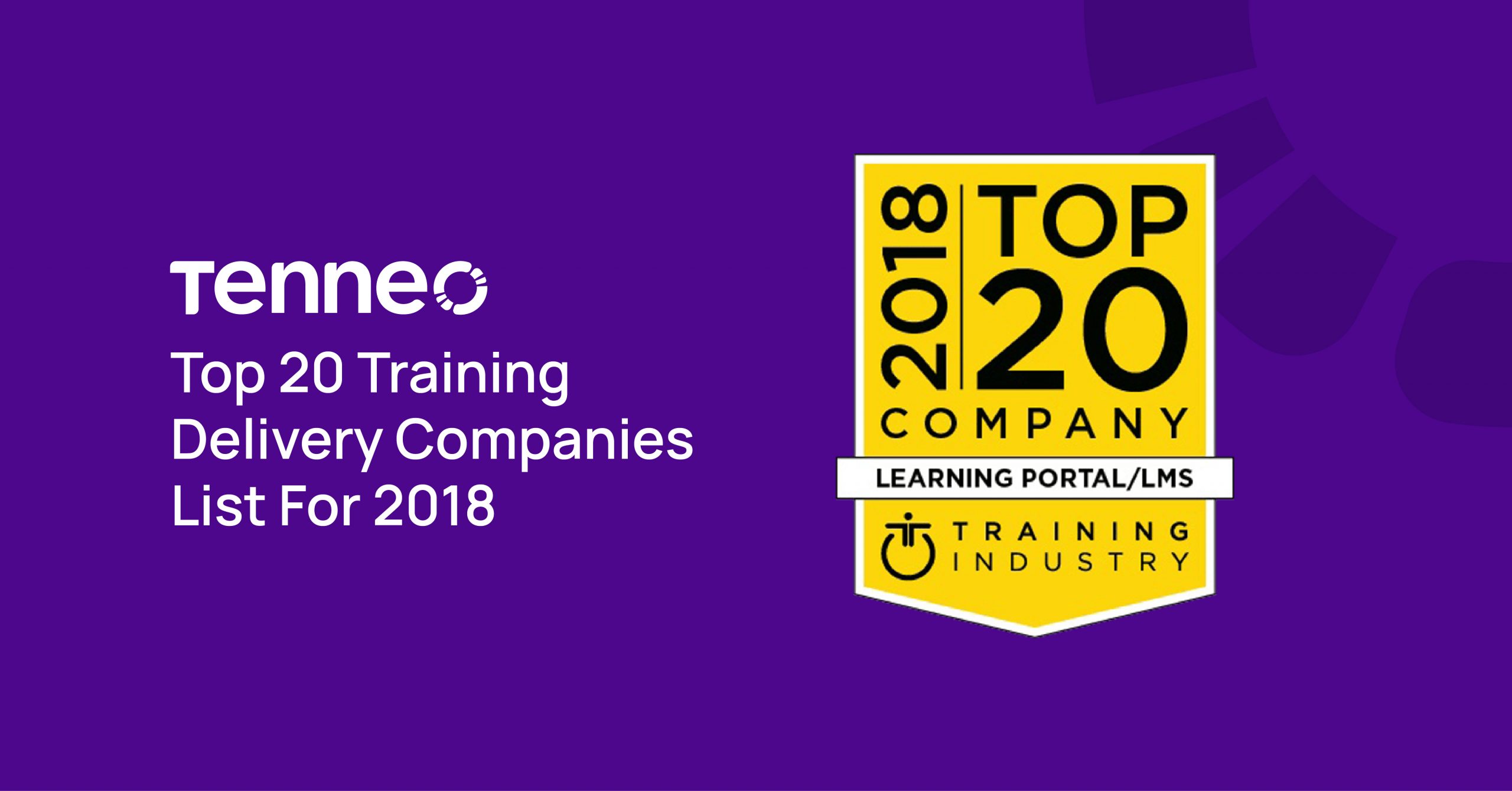
Top 20 Training Delivery Companies List For 2018
June 14, 2023
How does the Retail LMS Software enhance workforce skills to provide a better consumer experience?
April 13, 2023
Top 20 Training Delivery Companies List For 2018
June 14, 2023Blog - 22 Mar 2023 | 6 Min
Retail Sector | Why Should Companies Adopt an Enterprise Learning Management System
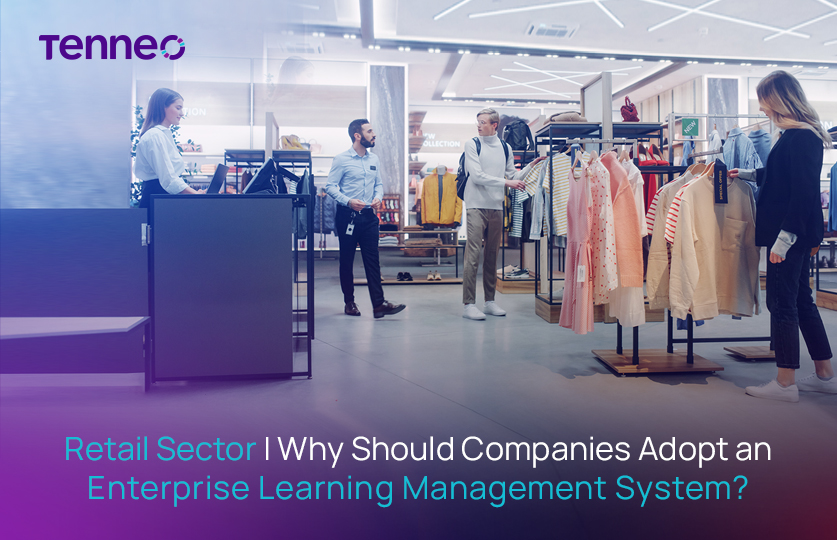
The retail sector is on the verge of growing quickly, as per the Global Ecommerce Forecast - By 2025, global retail sales are projected to hit $31.3 trillion. The customer’s move towards digitization has urged companies to think in line with changing their existing business strategies and upgrading their physical stores to be technologically enabled to provide a better shopping experience.
The retail sector is growing, however, are challenges also that need to be taken care of. Attracting new customers, retaining existing customers, keeping up with the changing customer expectations, and encouraging digital and contactless payments are a few challenges that are pressing concerns for any retail business. Hence, business leaders in this sector always look to come up with new approaches and strategies to overcome these for smooth functioning.
Another hurdle in the retail sector is the huge workforce turnover rate. Being a people-driven industry, it owes much of its success to workforce-customer interaction and service, therefore delivering the best training to the workforce is crucial. Therefore, a learning platform is needed that meets the learning and training requirements of the workforce. A customized, scalable enterprise learning management system that creates a competitive and engaging learning environment for the workforce spread across dispersed geographies.
Here’s how an Enterprise Learning Management System can benefit retail businesses:
Stay ahead of the competition with your competitors
In this era of a competitive world where there is a need to stay ahead of competitors, thus companies must build a pool of skilled workforce at a faster rate. The LMS’s user-friendly interface encourages workforces to complete their assigned training in a highly engaging manner. The availability of standardized content ensures a huge number of workforces get the same set of training and that similar information is shared with the customers across the different locations.
Reduces skill gaps within the workforce
The skills necessary to succeed in the retail sector often change. The workforces are the face of the company, and they interact with the customers either face-to-face or over the digital medium. Thus, workforces are requiring continuous training in skills such as communication skills, situation handling, and sales techniques. The enterprise learning management system provides regular skill gap analyses, recommends training required, and measures the same with recommended assessment modules. The upskilled workforces feel more confident and motivated which leads to faster business growth.
Improves customer satisfaction for better output
In the retail sector, companies must keep customer satisfaction at the highest level as when customers are happy, that will have a positive impact on overall sales, revenue, and business growth. While interacting with customers, workforces should possess good knowledge and be able to serve the customer with a personalized touch. The enterprise learning management system provides a learning environment where workforces can easily focus on customer service & customer-handling training, communication skill, and sales training.
Provides detailed insights with relevant and precise data points
Learning analytics is one of the most useful benefits of using an LMS for the retail sector. These insights help stakeholders make the learning programs more effective and update them as per the latest norms. With data-rich reports, retail companies can also determine what’s working best for their workforces and plan further learnings accordingly. The insights would also include cost analysis, which would help to finalize the budgeting for upcoming learnings. The workforce’s training completion and pending status are also easily managed with the use of the enterprise learning management system.
Conclusion:
To reduce turnover and unleash the potential of retail workforces to meet customer expectations, the implementation and execution of an effective engagement strategy are required. The companies can achieve the goal of keeping their workforce motivated as well as providing an interactive learning environment using the enterprise learning management system. This way, they would overcome all the learning challenges and move in the right direction of increased business growth.
Tenneo (formerly G-Cube LMS)’s Enterprise Learning Management System has been built in consultation with industry experts to provide end-to-end learning solutions for the dispersed workforce in the retail sector. Talk to our learning consultant to know more about our range of LMS products.
Related services
Product Engineering
Other Blogs
Stay updated with Tenneo
The retail sector is on the verge of growing quickly, as per the Global Ecommerce Forecast – By 2025, global retail sales are projected to hit $31.3 trillion. The customer’s move towards digitization has urged companies to think in line with changing their existing business strategies and upgrading their physical stores to be technologically enabled to provide a better shopping experience.
The retail sector is growing, however, are challenges also that need to be taken care of. Attracting new customers, retaining existing customers, keeping up with the changing customer expectations, and encouraging digital and contactless payments are a few challenges that are pressing concerns for any retail business. Hence, business leaders in this sector always look to come up with new approaches and strategies to overcome these for smooth functioning.
Another hurdle in the retail sector is the huge workforce turnover rate. Being a people-driven industry, it owes much of its success to workforce-customer interaction and service, therefore delivering the best training to the workforce is crucial. Therefore, a learning platform is needed that meets the learning and training requirements of the workforce. A customized, scalable enterprise learning management system that creates a competitive and engaging learning environment for the workforce spread across dispersed geographies.
Here’s how an Enterprise Learning Management System can benefit retail businesses:
Stay ahead of the competition with your competitors
In this era of a competitive world where there is a need to stay ahead of competitors, thus companies must build a pool of skilled workforce at a faster rate. The LMS’s user-friendly interface encourages workforces to complete their assigned training in a highly engaging manner. The availability of standardized content ensures a huge number of workforces get the same set of training and that similar information is shared with the customers across the different locations.
Reduces skill gaps within the workforce
The skills necessary to succeed in the retail sector often change. The workforces are the face of the company, and they interact with the customers either face-to-face or over the digital medium. Thus, workforces are requiring continuous training in skills such as communication skills, situation handling, and sales techniques. The enterprise learning management system provides regular skill gap analyses, recommends training required, and measures the same with recommended assessment modules. The upskilled workforces feel more confident and motivated which leads to faster business growth.
Improves customer satisfaction for better output
In the retail sector, companies must keep customer satisfaction at the highest level as when customers are happy, that will have a positive impact on overall sales, revenue, and business growth. While interacting with customers, workforces should possess good knowledge and be able to serve the customer with a personalized touch. The enterprise learning management system provides a learning environment where workforces can easily focus on customer service & customer-handling training, communication skill, and sales training.
Provides detailed insights with relevant and precise data points
Learning analytics is one of the most useful benefits of using an LMS for the retail sector. These insights help stakeholders make the learning programs more effective and update them as per the latest norms. With data-rich reports, retail companies can also determine what’s working best for their workforces and plan further learnings accordingly. The insights would also include cost analysis, which would help to finalize the budgeting for upcoming learnings. The workforce’s training completion and pending status are also easily managed with the use of the enterprise learning management system.
Conclusion:
To reduce turnover and unleash the potential of retail workforces to meet customer expectations, the implementation and execution of an effective engagement strategy are required. The companies can achieve the goal of keeping their workforce motivated as well as providing an interactive learning environment using the enterprise learning management system. This way, they would overcome all the learning challenges and move in the right direction of increased business growth.
Tenneo (formerly G-Cube LMS)’s Enterprise Learning Management System has been built in consultation with industry experts to provide end-to-end learning solutions for the dispersed workforce in the retail sector. Talk to our learning consultant to know more about our range of LMS products.


